Rise in violence against Chinese nationals in Pakistan threatens China's 'Silk Road' vision
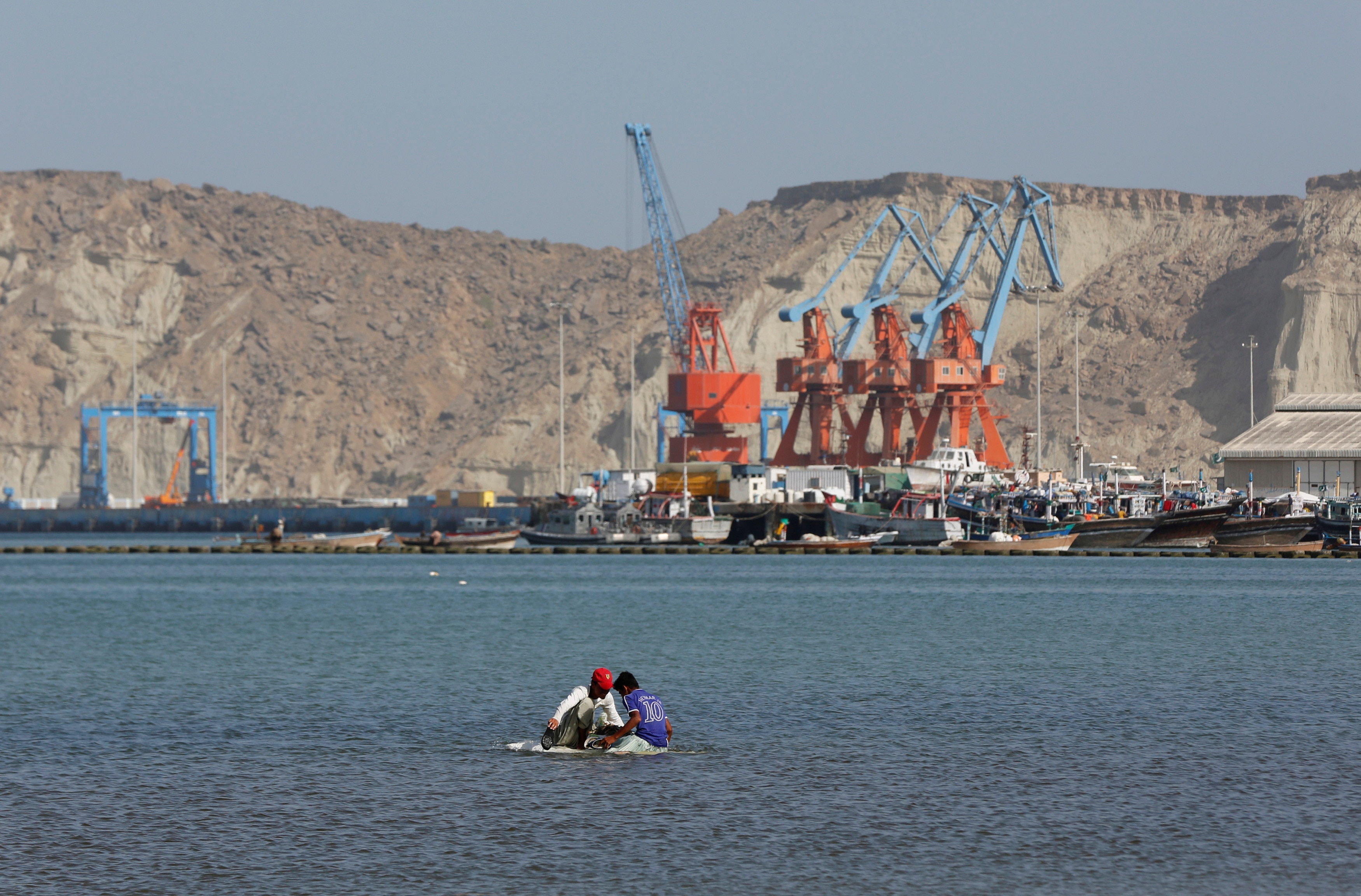
The China-Pakistan Economic Corridor is a part of the Belt and Road Initiative including the strategic Gwadar port in Pakistan.
In short:
High-level discussions between China and Pakistan last week focused on bolstering security following the deaths of two Chinese engineers killed in a car bomb attack.
Nearly 100 Chinese nationals have been killed in Pakistan in recent years amid local discontent over the failure of China-backed infrastructure projects to benefit local communities.
What's next?
Pakistan has pledged to increase security and safety for "Chinese personnel, projects and institutions".
When China's Premier Li Qiang visited Pakistan last week — the first such visit in over a decade — the talks focused on boosting security for Chinese projects.
China is spending billions of dollars on the China-Pakistan Economic Corridor infrastructure project, which spans 3,000 kilometres and includes the strategic Gwadar Port in Balochistan, in the country's south-west.
It's hoped the project will create a new "Silk Road" shortening the trading route between China and the Middle East.
However, Chinese nationals working in Pakistan continue to be targeted by attacks from separatist groups, with nearly 100 killed in recent years.
Earlier this month, two Chinese engineers were killed by a suicide car bomb during an attack by the Baloch Liberation Army (BLA) on a Chinese convoy in Karachi.
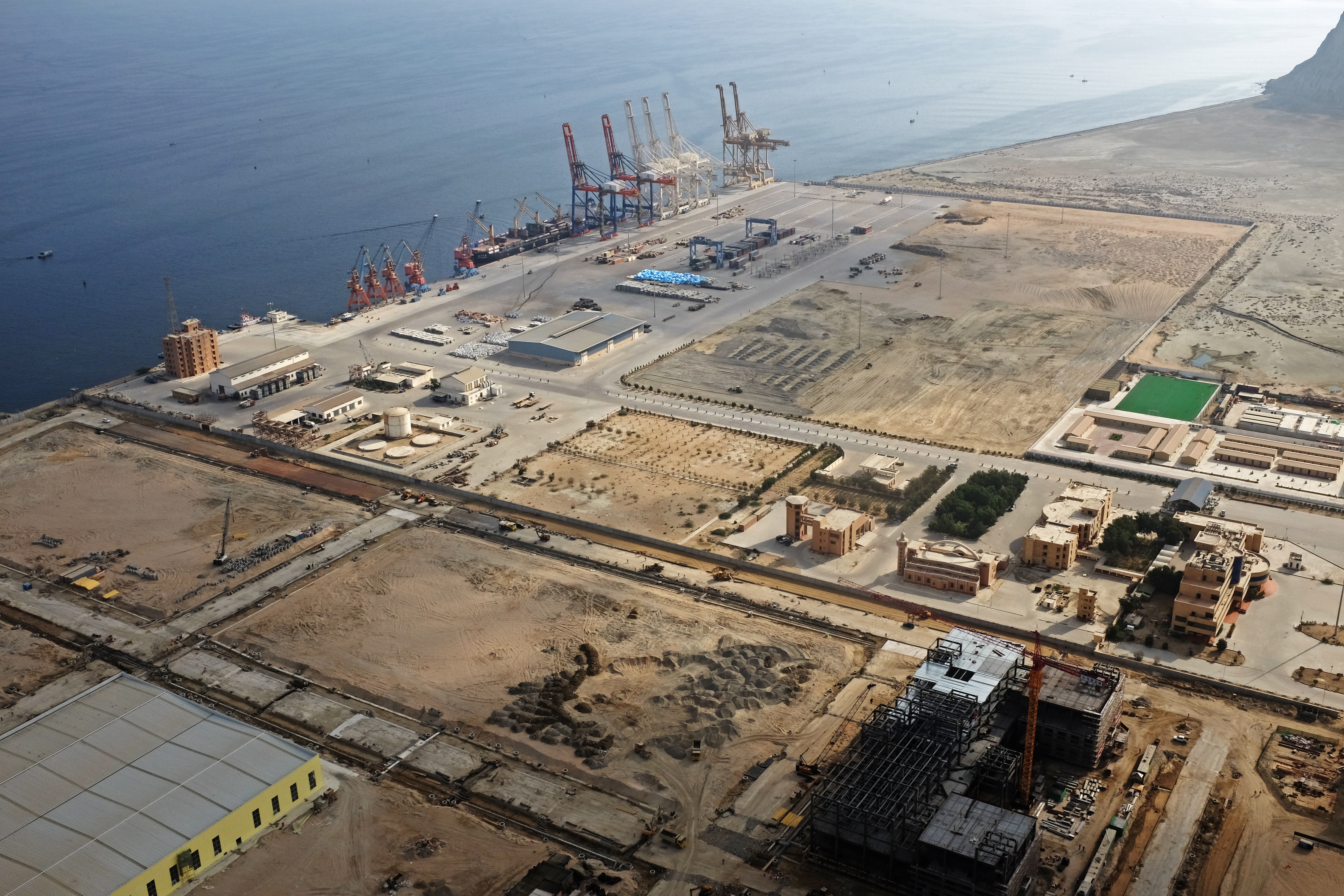
Chinese-funded infrastructure projects in Pakistan have sparked resentment and its nationals are routinely targeted by militant groups.
Who is behind the recent attacks?
The BLA, made up of militants from the Baloch ethnic minority, is the main group responsible for attacks on Chinese interests in Pakistan.
The terror group first came to prominence in the early 2000s after they claimed responsibility for a series of bombing attacks on the Pakistani authorities.
However, its roots are believed to go back to the 1970s, with militants fighting the Pakistan government over the exploitation of local resources.
They say their goal is an independent state for the Baloch people in the Balochistan region.
In recent years, they have begun to target Chinese interests along with the Pakistan government.
Analysts note that these attacks have focused on people tied to China's projects, not random Chinese nationals.
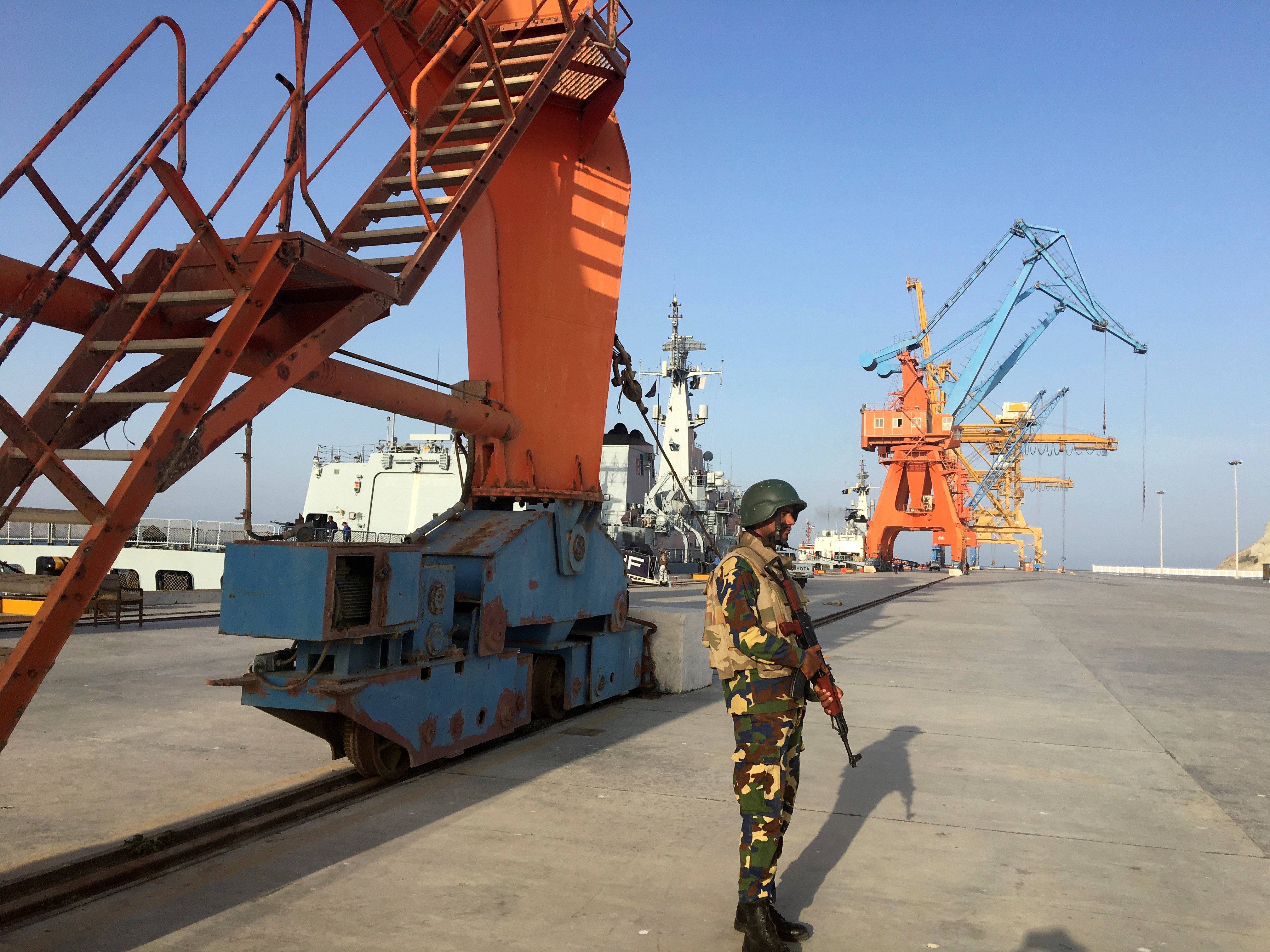
The Balochistan Liberation Army has targeted Chinese nationals working on the China-Pakistan Economic Corridor.
A rise in violence targeting Chinese nationals
Imtiaz Gul, from the Islamabad-based Centre for Research and Security Studies, said that such attacks were part of a longstanding pattern.
"The targets have been directed at Chinese engineers, accountants, professionals [and] business executives over the last few years," he told the ABC.
However, he pointed out that it wasn't just the BLA.
He said groups like Tehrik-e-Taliban Pakistan and Islamic State Khorasan had also carried out attacks on Chinese interests in the region.
In March, five Chinese engineers were killed in a bombing linked to the Pakistani Taliban, though the group denied involvement.
He also noted there had been violent incidents unrelated to Chinese nationals, such as the gunning down of 21 coal miners, including four Afghans, in Balochistan this month.
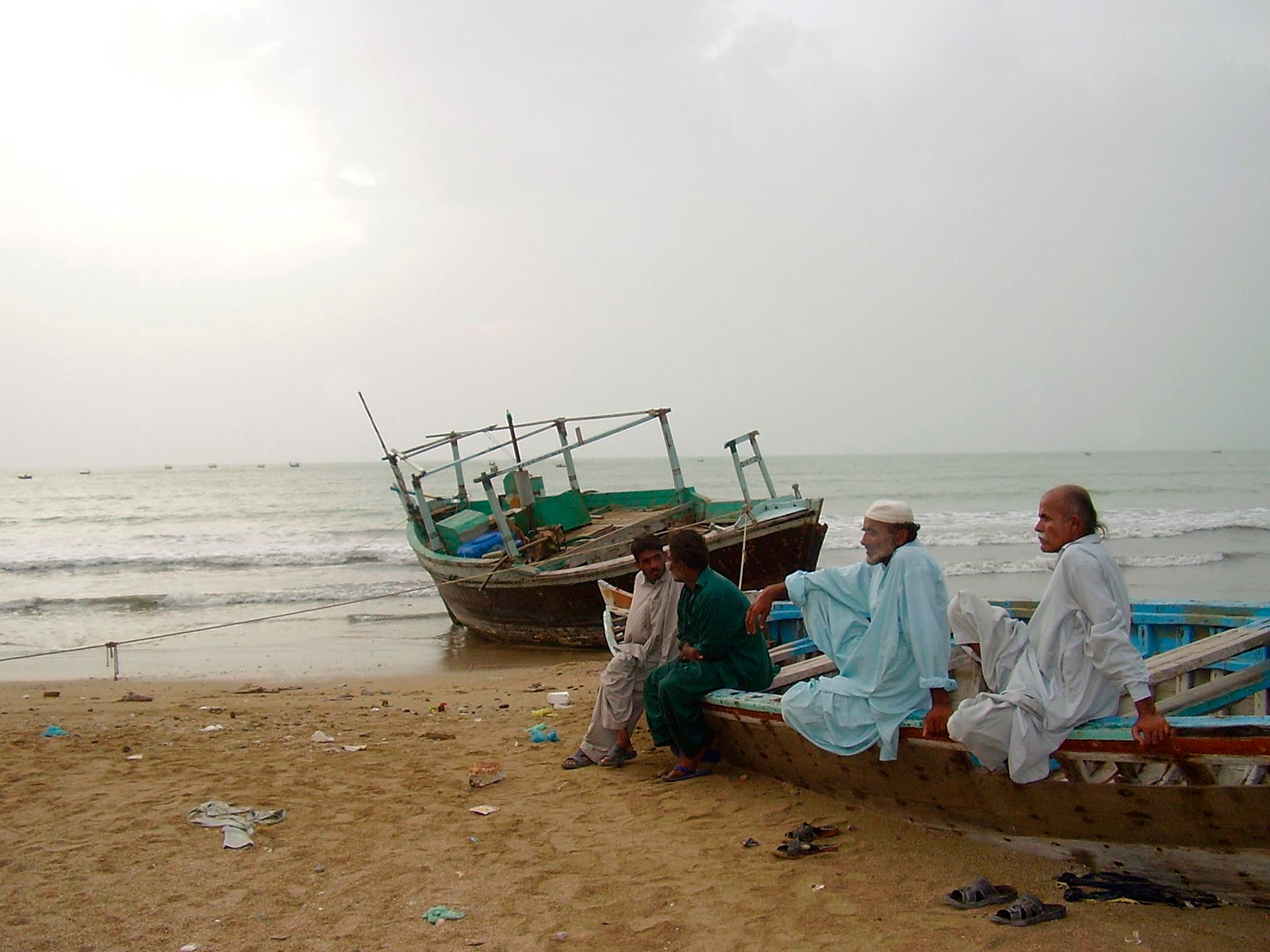
Fishermen in Pakistan are frustrated they have been restricted from freely accessing their usual fishing spots around Gwadar.
"Regardless of who is behind these attacks, they are all instruments of terror, to destabilise the region," Mr Gul said.
Why is there opposition to Chinese investment projects?
Resentment against the Chinese presence in Balochistan comes from two main issues.
First, locals feel excluded from the economic benefits of projects like Gwadar Port.
Despite promises of fresh water and jobs, many say these have not materialised.
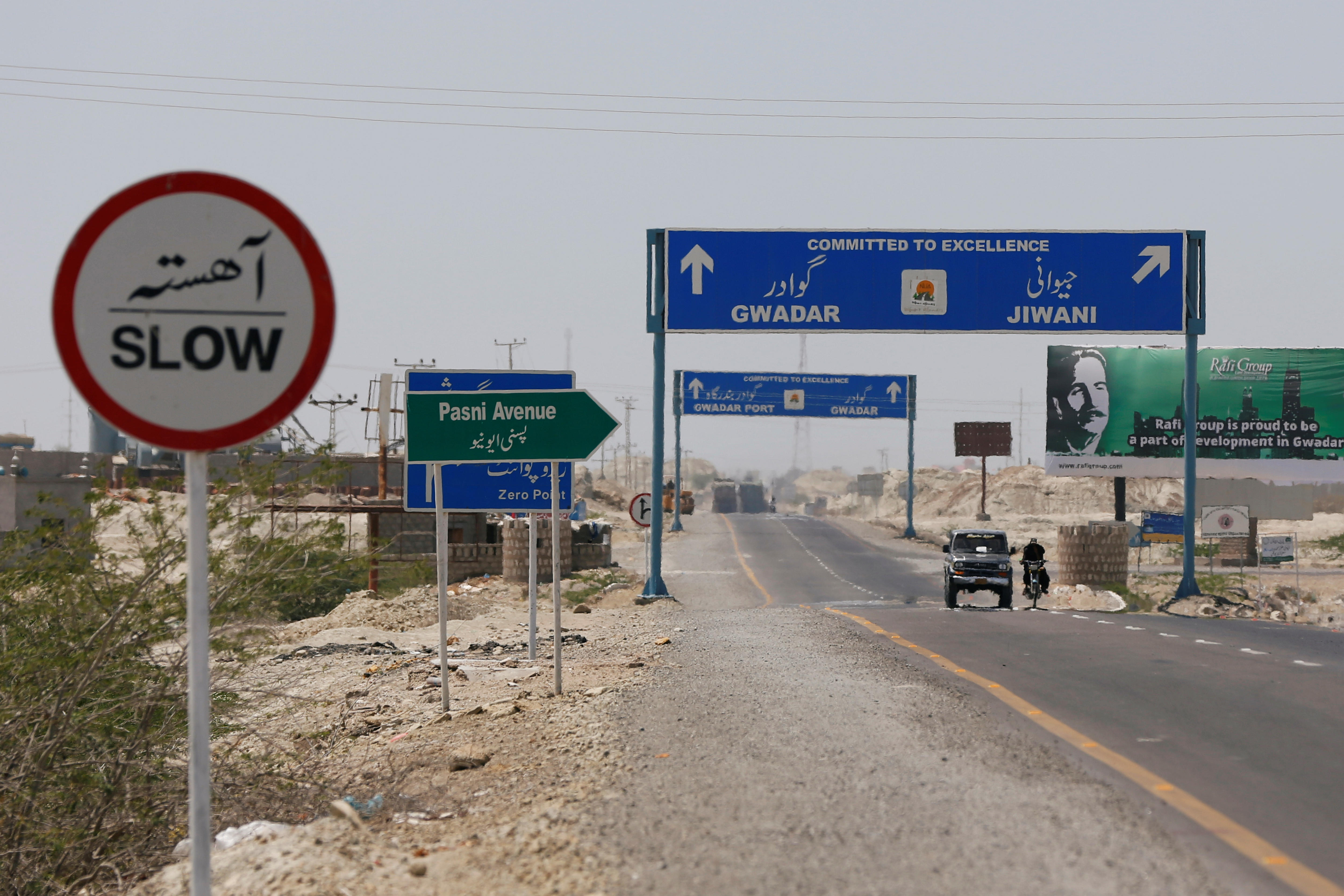
China and Pakistan have reaffirmed their commitment to accelerating the construction of supporting facilities for Gwadar port.
"We don't even have drinking water," said Mir Sadaat Baloch, a local teacher.
"I've sat in three meetings, and there is a lot of talk and not any action," he added.
Local fishermen are also frustrated with the restricted access to the sea and port expansion into their traditional fishing grounds, impacting their livelihoods.
Secondly, many believe their resources are being exploited without benefiting the province.
Balochistan, the largest province of Pakistan covering almost 44 per cent of the country's land mass, is resource rich yet it is also one of the poorest.
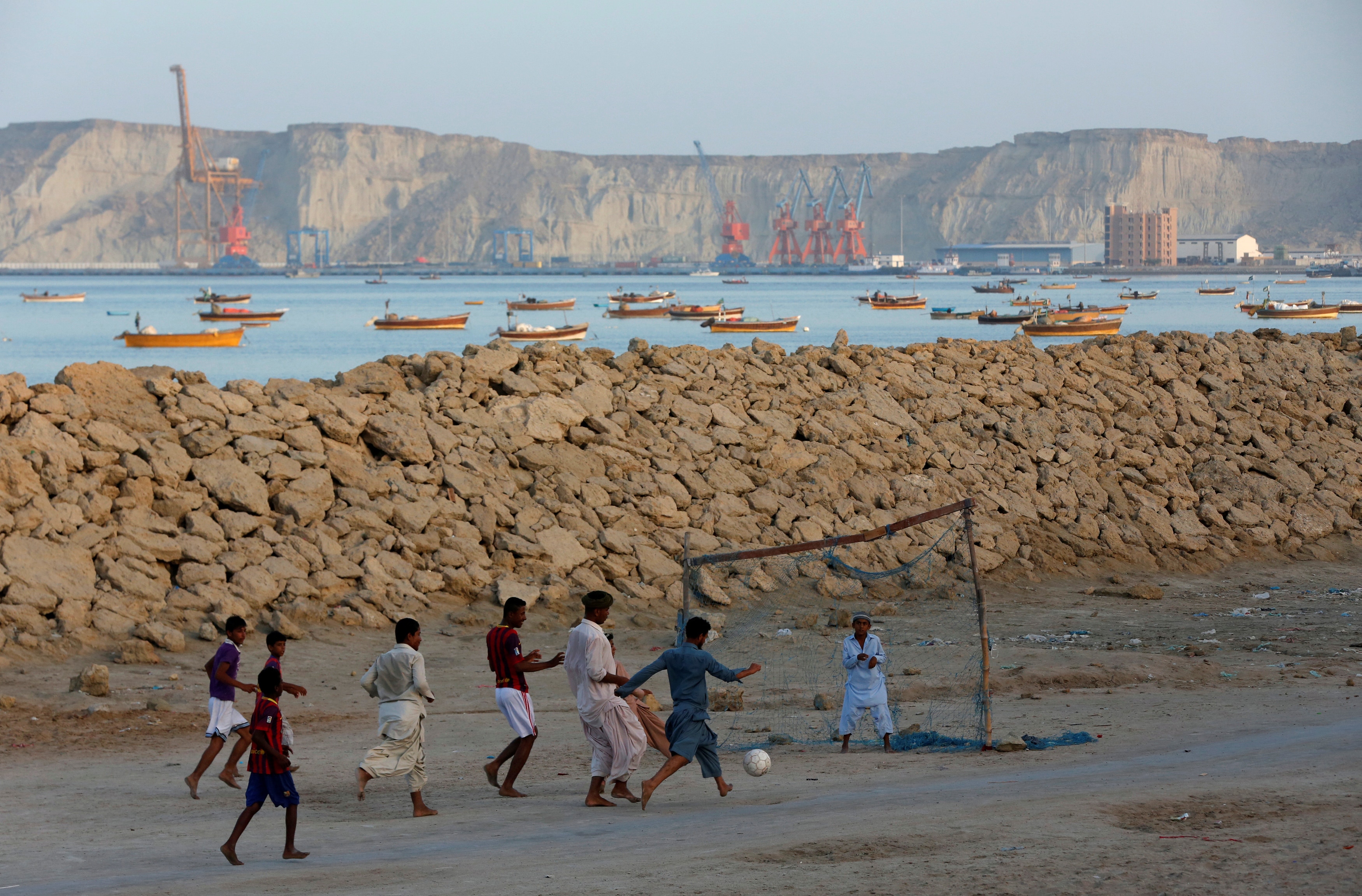
Locals in Balochistan Province have demanded a greater share of the region's natural resources.
Analyst Sher Baz Khetran, a researcher at the Institute of Strategic Studies in Islamabad, said local communities felt they were not properly consulted before work began on the projects.
"Many Baloch people see it in black and white. They don't want the Chinese to invest anymore while their resources are exploited," Mr Khetran said.
Seema Khan, a professor at Deakin University, argues that the violence stems from broader political instability and lack of representation of Balochistan people, particularly in the lower house of Pakistan's parliament.
Raji Pillai Rajagopalan, a senior research fellow at the Australian Strategic Policy Institute, said Pakistan was grappling with multiple challenges.
"The situation is highly uncertain, with a disturbing domestic political climate, issues with the Taliban and Afghanistan, a deteriorating law and order situation, and an economy in serious trouble," she said.
The Gwadar Port Authority did not immediately respond to questions about the lack of consultation or development around the port.
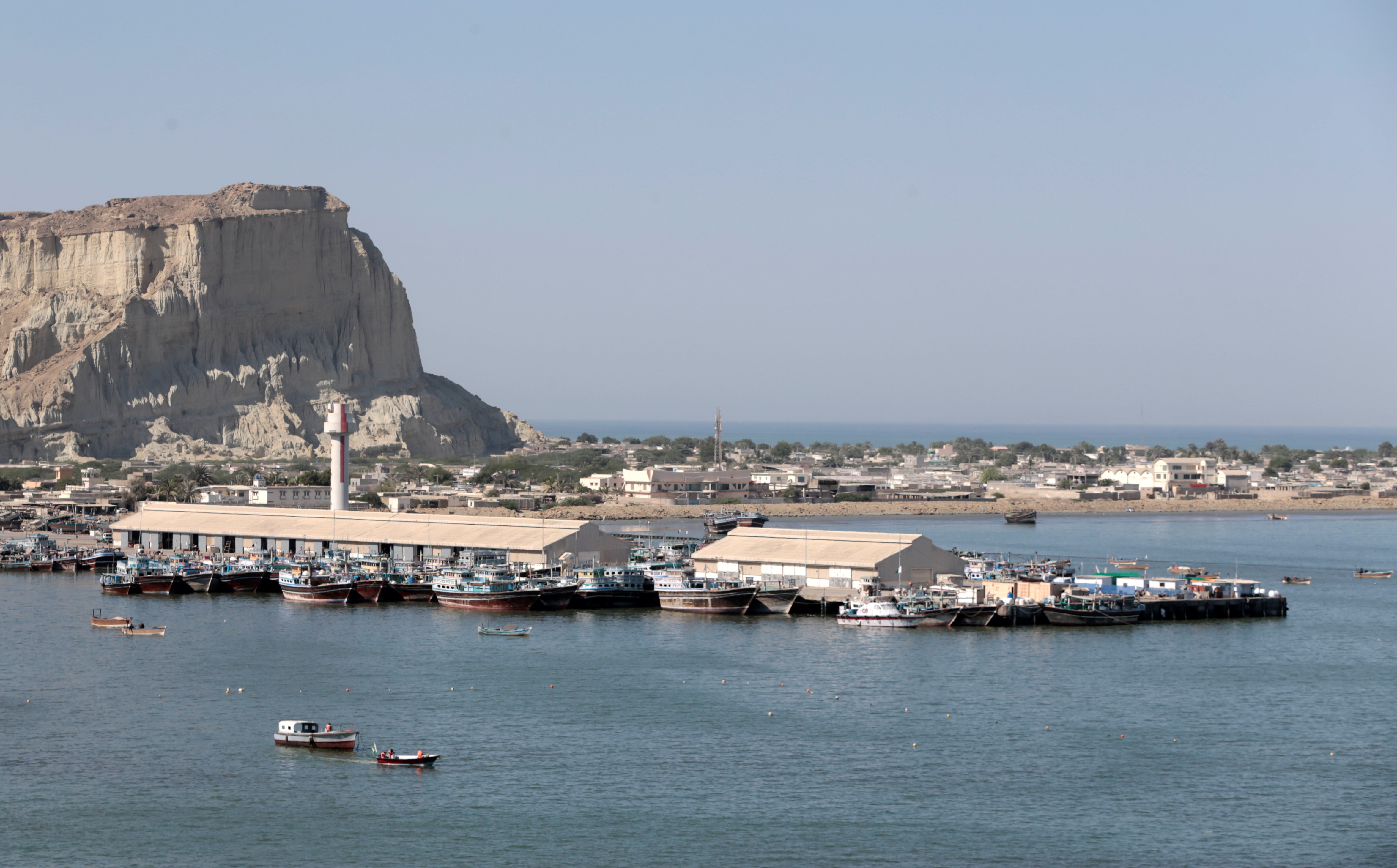
There has been growing discontent among locals in Balochistan who want equal rights and access to clean drinking water.
Accusations Pakistan used for proxy terrorism
Pakistan, meanwhile, blames foreign powers for stoking unrest.
"Pakistani authorities suspect the Balochistan Liberation Army, which has safe havens along Iran's border with Balochistan, is being used as a proxy by India," Syed Fazl-e-Haider, author of Economic Development of Balochistan, told the ABC.
India denies the claims.
Previously, India has directly accused Pakistan's powerful military intelligence agency of involvement in 2008's Mumbai attacks and high commission officials of espionage in Delhi.
According to Ms Rajagopalan, tit-for-tat accusations between the two countries are common.
"I haven't seen any convincing evidence that India is involved in any material sense in the Baluchi struggle," she told the ABC.
"Of course, Indian leaders have publicly supported Baluchis rhetorically, but I am not sure if they have followed up with actual assistance."
Ms Khan pointed to the economic rivalry between India and China and suggested regional actors may want to sabotage the China-Pakistan friendship.
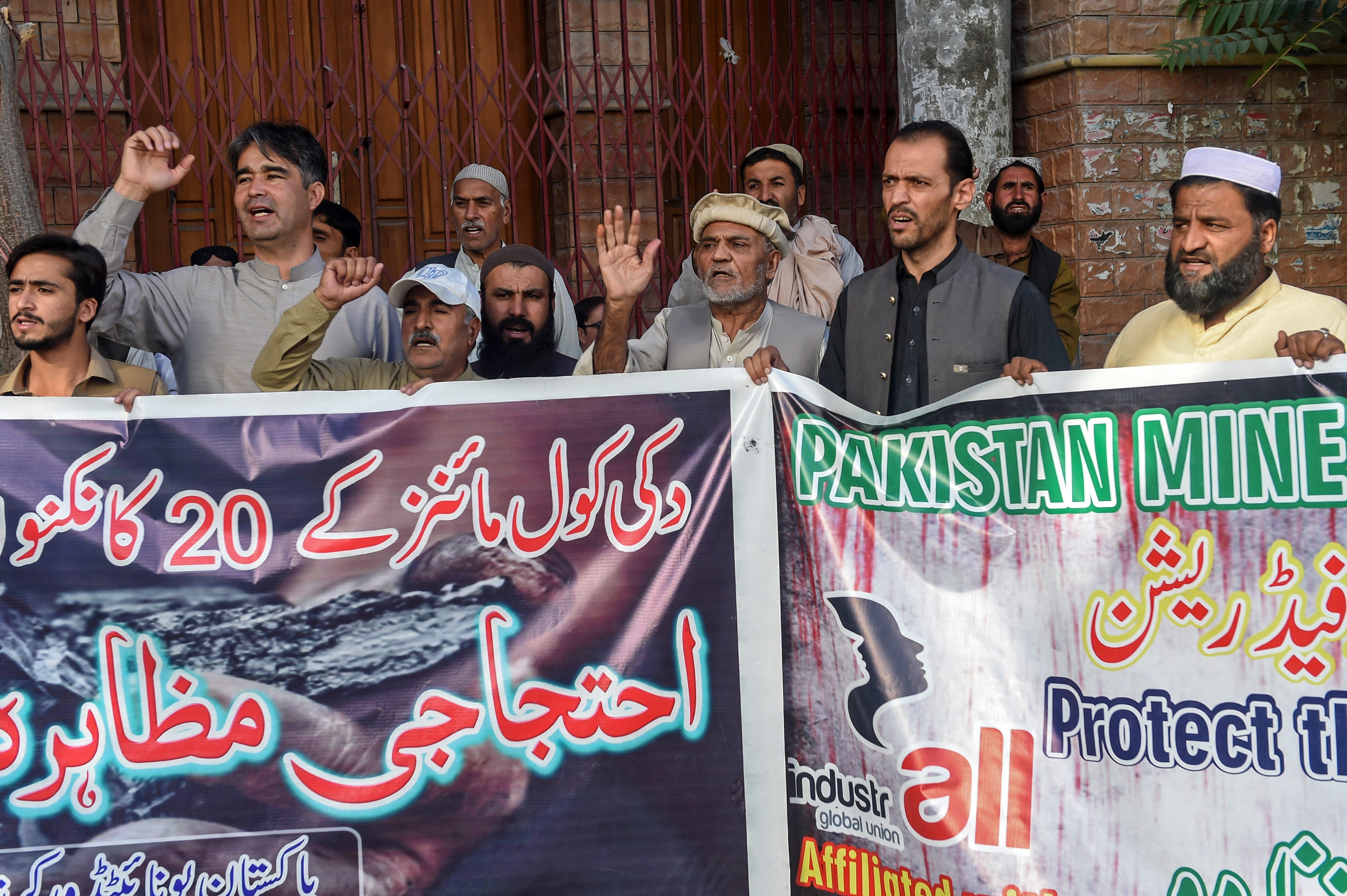
Members of the Pakistan Mine Workers Federation protest against the killings of coal miners in Balochistan's Duki district in Quetta.
"It's in a lot of foreign powers' interests to keep Pakistan unstable and to target economic partnerships," said Ms Khan.
India opposes China's Belt and Road infrastructure projects and is building its own alternate route via Afghanistan to Iran.
The head of media for Pakistan's armed forces has previously accused India of sponsoring banned UN-designated terrorist groups including Tehrik-e-Taliban Pakistan, Jamaat-ul-Ahrar, and the Baloch Liberation Army.
In 2016, Pakistani authorities arrested Kulbhushan Jadhav, an alleged Indian spy and naval officer who confessed to funding Baloch insurgents to carry out attacks in Pakistan.
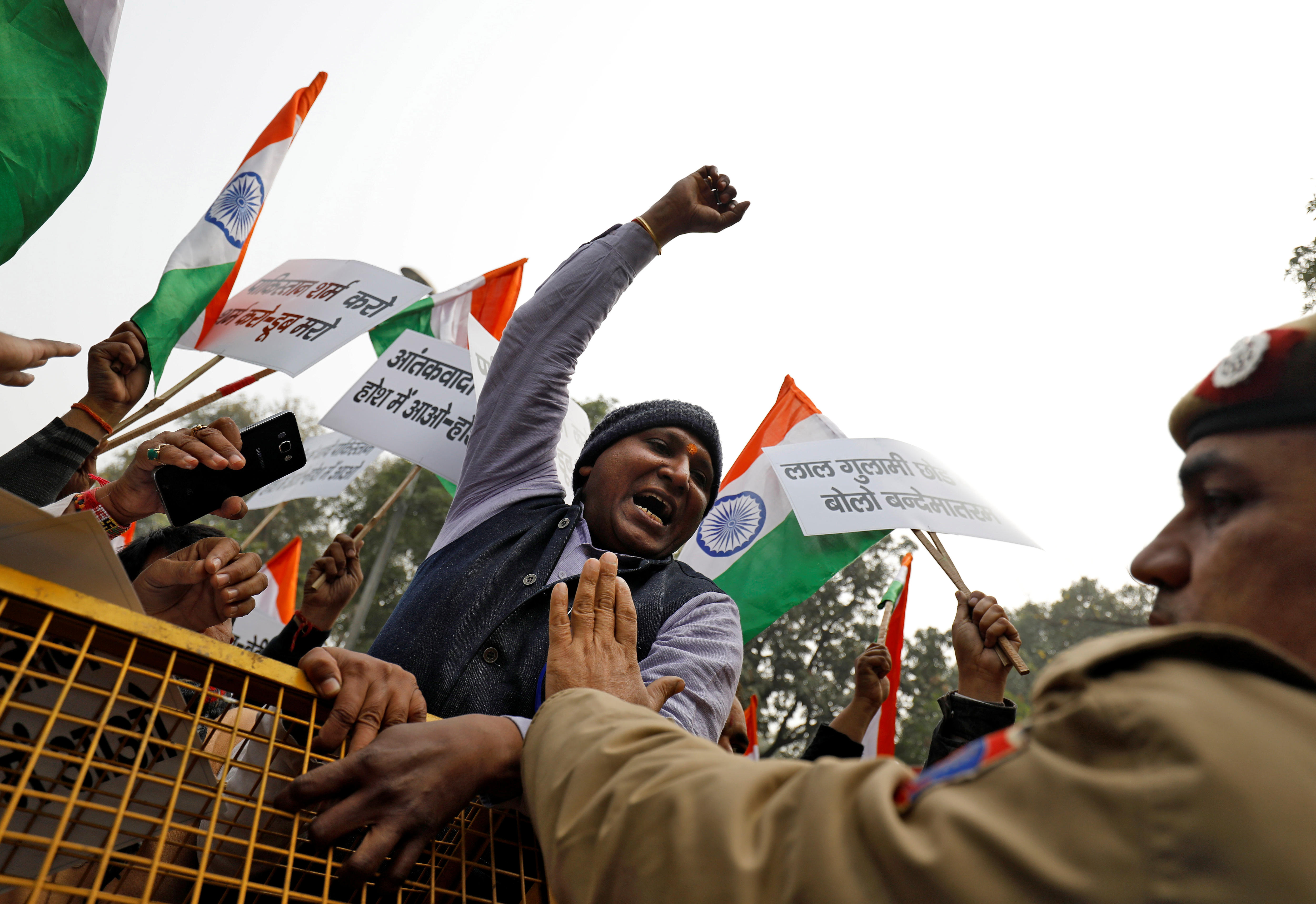
Pakistan has accused the BLA of being an instrument of proxy terrorism.
Mr Jadhav, operating under the alias Hussein Mubarik Patel, had been running a small business in the Iranian port city of Chabahar.
India's foreign ministry denied the allegations at the time, dismissing them as "fabricated" and "figments of imagination".
"This desperate attempt will find few takers as the international community is aware of Pakistan's tactics," India's foreign ministry spokesperson Anurag Srivastava said.
Local analysts were also sceptical that the recent Karachi attack was carried out without the help of specialised external expertise.
"To know the exact map coordinates, timing of vehicles and movements takes a lot of intelligence," said journalist Essa Naqvi.
"This organised militant activity is beyond the capacity of local indigenous people who are struggling to get electricity and a glass of clean drinking water."
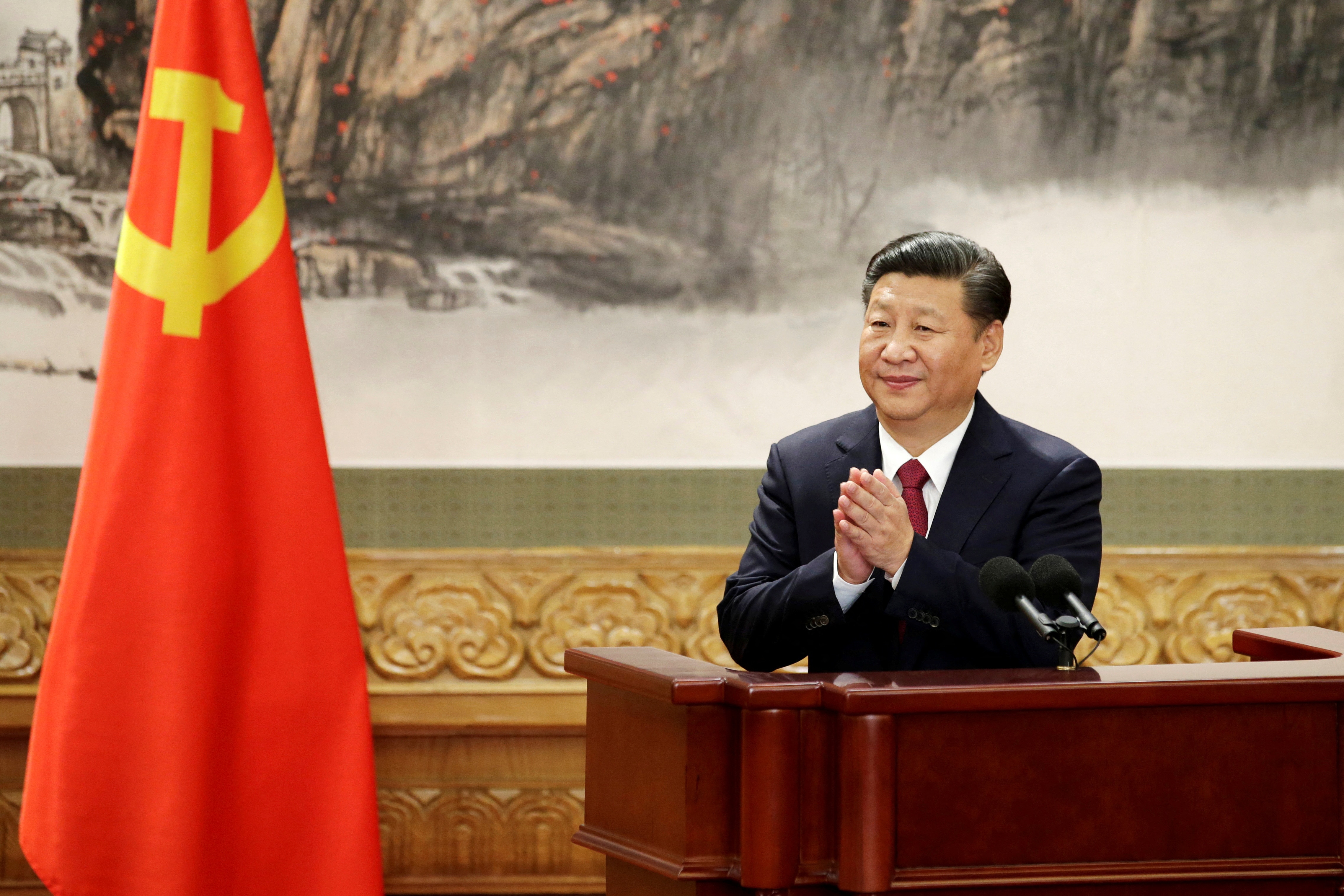
China called for the expansion of its Belt and Road Initiative (BRI) in Pakistan this week despite security threats.
Promises to bolster security
Following the meetings between the Pakistani and Chinese representatives — held on the sidelines of Eurasian security conference — Pakistan agreed to increase security for Chinese workers.
Pakistan would make "comprehensive efforts to ensure the safety and security of Chinese personnel, projects and institutions", a joint statement said.
However, Mr Naqvi criticised the focus on Chinese citizens, saying local needs were being ignored.
"I don't see any effort from the government to look at the safety, right to education, shelter and basic rights of citizens in Balochistan," he said.
"It is more about safety of Chinese citizens."
He added that corruption prevented investment benefits from reaching ordinary people.
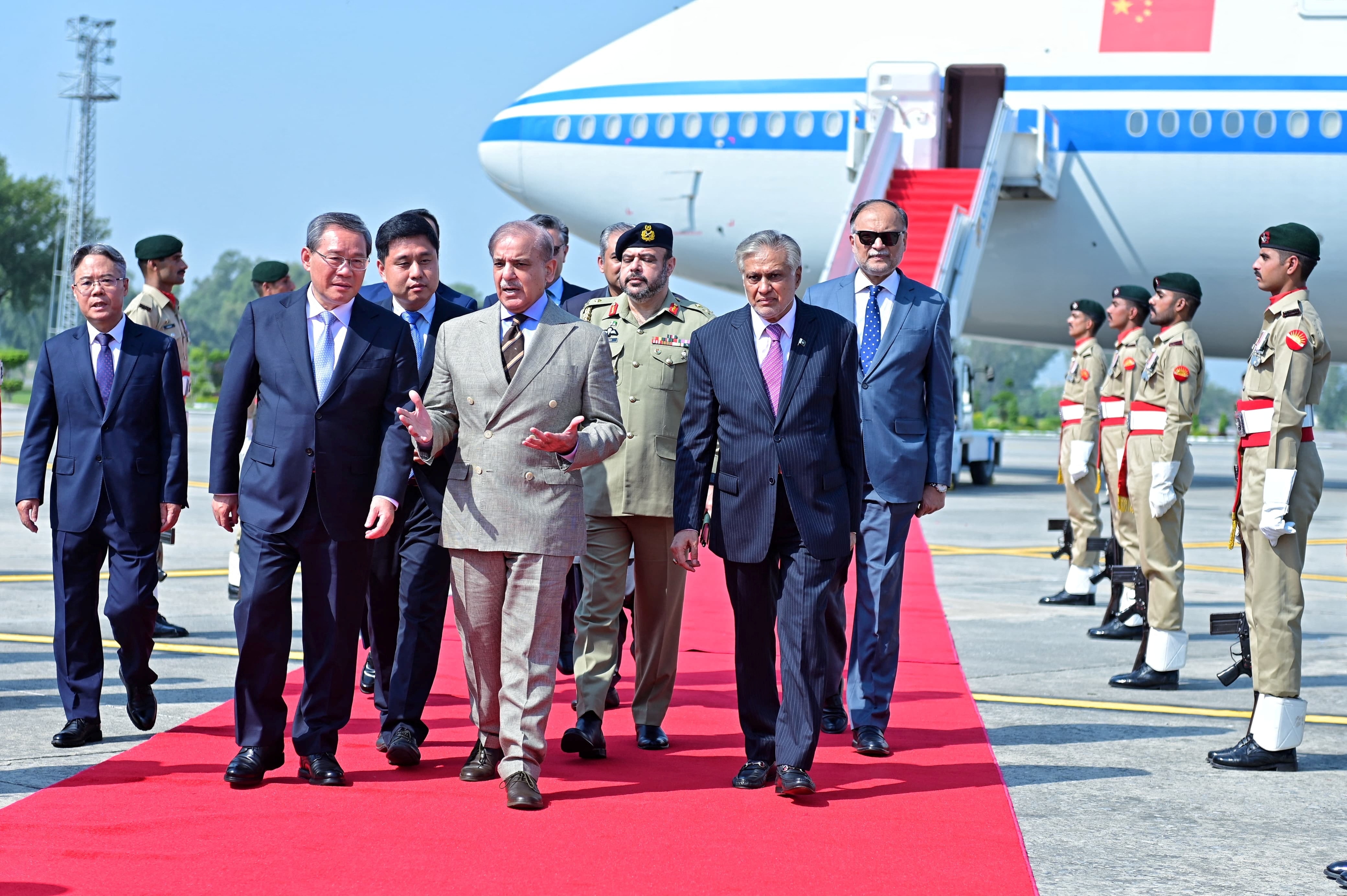
Pakistan's Prime Minister Shehbaz Sharif welcomes Chinese Premier Li Qiang in Islamabad, Pakistan ahead of security talks.
How important is Pakistan for China's Belt and Road Initiative?
Despite the security threats, China's investment in Pakistan is crucial for the success of the Belt and Road Initiative.
Experts agree that the project is too important for China to abandon.
Gwadar Port, in particular, is central to China's regional ambitions, competing with major hubs like Iran and Dubai.
It was envisioned as the crown jewel of President Xi Jinping's infrastructure plan, linking China's Xinjiang region to the Arabian Sea, and shortening vital trade routes.
Ms Khan argues that Gwadar's strategic importance lies in its ability to bypass the Malacca Strait, to avoid any possible blockages.
"Once fully operational, it will firmly secure China's interests," she said.
"This port is vital for China's broader strategic aims, shaping relationships between superpowers in the region."
By:https://www.abc.net.au/news/2024-10-21/rise-in-violence-against-chinese-nationals-in-pakistan/104487244(责任编辑:admin)
下一篇:Infant mortality increases following Dobbs ruling, while abortion rate stays the same due to travel and telehealth
 Socceroos rescue a point
Socceroos rescue a point  Wallabies thrash Wales 52
Wallabies thrash Wales 52 Jake Paul beats Mike Tyso
Jake Paul beats Mike Tyso Live updates: England vs
Live updates: England vs  US election 2024: Donald
US election 2024: Donald  US election live: Kamala
US election live: Kamala
- ·Brazil police formally accuse former pr
- ·Donald Trump's choice for US attor
- ·Japanese state sued in lawsuit seeking
- ·Jury finds MMA star Conor McGregor sexu
- ·Laken Riley's murder became a MAGA
- ·The celebrity look-alike craze is about
- ·Five remaining Bali Nine members could
- ·North Korea's latest weapon agains
- ·Brazil police formally accuse former pres
- ·Donald Trump's choice for US attorne
- ·Japanese state sued in lawsuit seeking to
- ·Jury finds MMA star Conor McGregor sexual
- ·Laken Riley's murder became a MAGA r
- ·The celebrity look-alike craze is about m
- ·Five remaining Bali Nine members could so
- ·North Korea's latest weapon against
- ·Hezbollah says Israel 'cannot impose
- ·Inside the rise of US oligarchs and how i
- ·One of Vietnam's high-profile politi
- ·Shanghai Walmart Attack: A Man Randomly S
- ·South Korean police officers jailed over
- ·Cambodia publicly shames maid deported af
- ·North Korea to use all forces including n
- ·Philippines condemns China attack of Viet
- ·US adds 2 more Chinese companies to Uyghu
- ·North Korean defector steals South Korean
- ·Malaysia deports Cambodian worker for cal
- ·Rebels battle for Myanmar junta’s weste

